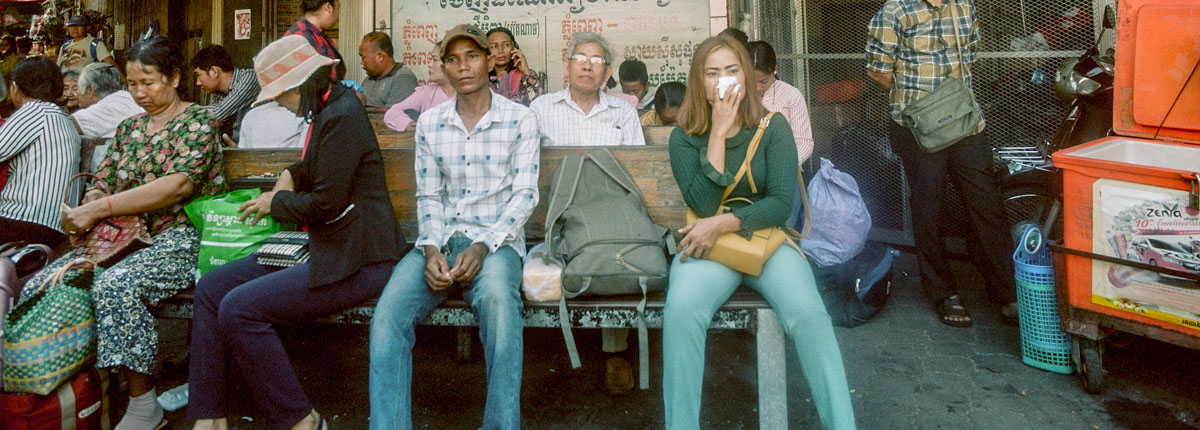Forced online scamming: How the Cambodia CTIP project is addressing a troubling new trafficking trend in Asia
The USAID Cambodia Counter Trafficking in Persons project, implemented by Winrock International, is taking a leading role to address a new form of trafficking that has grown rapidly in Cambodia and across Southeast Asia in the past five years. While previous iterations of Cambodia CTIP focused on the trafficking of Cambodians into exploitative work, the project has shifted its focus to counter a troubling new trend: the trafficking of foreign nationals into Cambodia to work in illegal online scamming centers run by Chinese organized crime networks.
Cambodia CTIP collaborates with a wide range of partners to provide services to survivors, engaging local and international organizations and the Cambodian government to foster a systems approach to preventing trafficking for forced criminality.
As many Cambodians continue to undertake risky migration leading to vulnerability through trafficking or debt bondage, Cambodia CTIP engages intensively with partners to develop alternative livelihood options and strengthen prosecution through training of law enforcement.
The work has perhaps never been more important.
According to the U.S. Department of State’s 2024 Trafficking in Persons Report, released in June 2024, “NGOs estimate as many as 100,000 workers are exploited in forced labor in these compounds in Cambodia, noting the number is likely conservative. These compounds are largely clustered in the port city of Sihanoukville, an SEZ under a Belt and Road Initiative agreement between Cambodia and the PRC, but there are dozens of additional compounds throughout Cambodia, primarily along the borders with Thailand and Laos.”
Cambodia CTIP’s collaborative approach to tackling the problem is drawing both regional and global attention. In May 2024, a USAID delegation comprising representatives from Laos, Thailand and Vietnam, along with officials from USAID’s headquarters in Washington, D.C., conducted a trip to Cambodia to learn more about the trend.
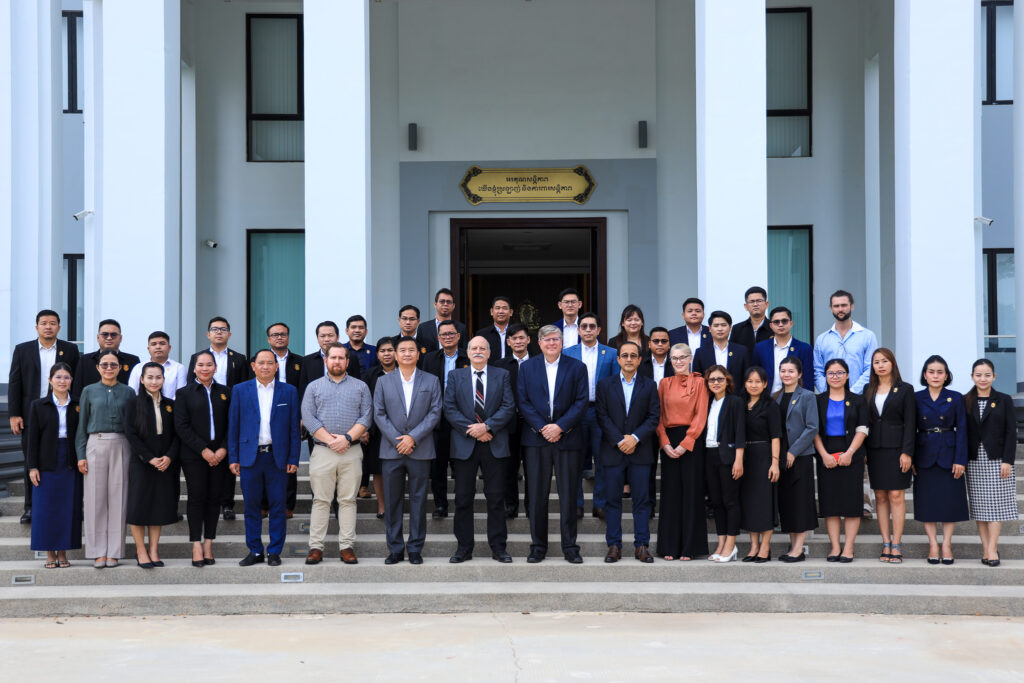
Forced online scamming is a form of human trafficking where victims are coerced or tricked into working for scam operations, which can involve fraudulent activities such as phishing and online gambling, recruiting participants for fake investment schemes and romance scams. People are tricked into accepting fake job offers and then forced into working for criminals, typically lured with promises of legitimate employment. They then find themselves trapped in abusive and exploitative conditions, forced to work long hours, threatened with or subjected to violence, and often have their travel documents confiscated. It’s a form of exploitation that has become increasingly prevalent across Asia, not only in Cambodia, Myanmar, Laos and the Philippines, but also in India, Pakistan and Bangladesh.
A May 13, 2024 report by the United States Institute for Peace, “Transnational Crime in Southeast Asia: A Growing Threat to Global Peace and Security” states: “Over the past decade, Southeast Asia has become a major breeding ground for transnational criminal networks emanating predominantly from China. These organizations target millions of victims around the world with illegal and unregulated online gambling and sophisticated scamming operations. As of the end of 2023, a conservative estimate of the annual value of funds stolen worldwide by these syndicates approached $64 billion.”
Hosted by Cambodia CTIP, the USAID delegates visited several locations, including spots that have become notorious sites for online scams and casino operations. They also evaluated the effectiveness of current anti-crime measures in the country. The study group engaged with Winrock staff and team members from the project, learning about its focus on enhancing and developing livelihoods alternatives in vulnerable communities, such as livestock rearing and vegetable cultivation, in collaboration with local partners.
The project engages stakeholders and works with counter-trafficking programs and projects in other countries to directly support survivors. Recently, Cambodia CTIP collaborated with USAID’s Fight Slavery and Trafficking in Persons activity, implemented by Winrock in Bangladesh, to successfully repatriate 40 Bangladeshi survivors rescued by the Cambodian Police. All survivors had been lured by the same broker and coerced to work in construction sites or in online scamming centers.
Cambodia CTIP partner Caritas Cambodia, a NGO that operates a shelter and provides support for trafficking survivors, provided a safe, interim waystation. With funding from the project, Caritas recently completely an expansion of its shelter, which is now fully operational and delivering services to those in need and has increased its capacity from 30 to 120.
But it’s not just about the numbers.
The funding enabled Caritas also to improve its already-robust safety measures at the shelter, including installation of stronger physical security features, including state-of-the-art closed-circuit TV systems. These enhancements ensure that survivors can stay safe and recover in a secure environment.
Since the beginning of 2024, Cambodia CTIP has worked with Caritas to successfully repatriate 58 trafficking survivors, all of whom received accommodation and services through the Caritas shelter. This major achievement occurred with support from both Caritas and Cambodia’s government. The repatriated survivors included the 40 survivors from Bangladesh, one Sri Lankan, four Vietnamese and one Cambodian.
In the case of the Bangladeshi survivors, Caritas supported them at the renovated shelter while they awaited arrangements for their departure. The project collaborated with the Cambodian Ministry of Social Affairs, Veterans, and Youth, the Bangladesh Ministry of Foreign Affairs, and the International Organization for Migration in Cambodia and Bangladesh to ensure their safe return. In the meantime, the FSTIP project team oversaw re-entry protocols, providing transportation home and comprehensive care packages post-arrival. FSTIP will follow-up with survivors to ensure continuation of care as they reintegrate into their communities, exemplifying the end-to-end support that should be offered in all cases.
Cultivating Partnerships
Collaboration with both local partners and other projects working to support survivors in the region underscores both Cambodia CTIP’s and FSTIP’s commitment to providing safety and support to people at risk of trafficking. The leaders of both activities expressed deep appreciation to all partners who helped to facilitate the survivors’ safe return and reintegration.
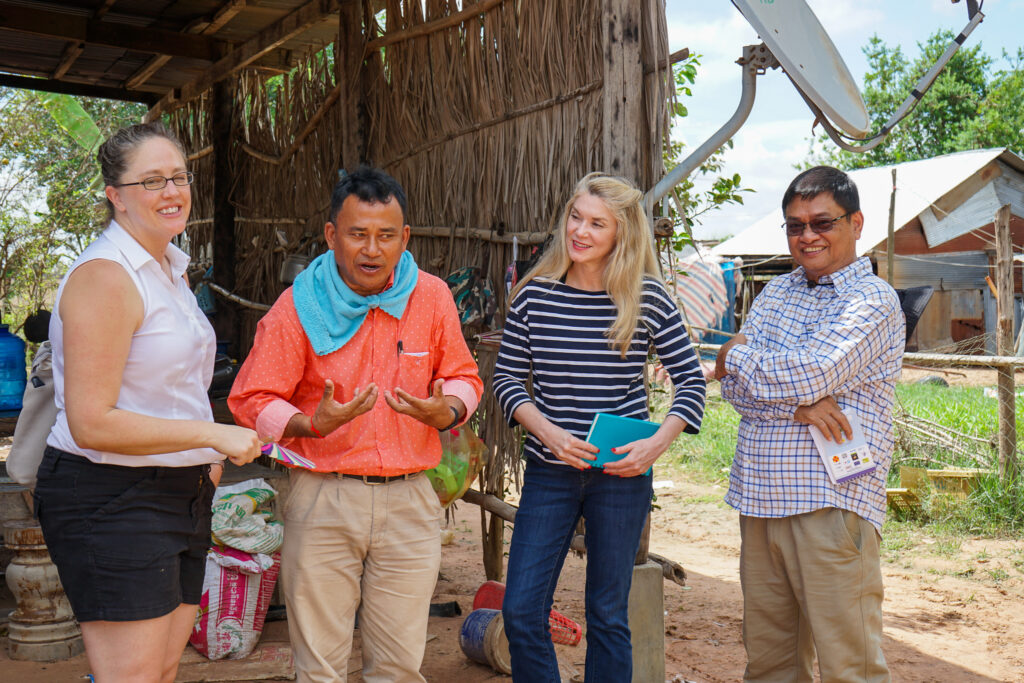
Another Cambodia CTIP local partner, Chab Dai Coalition, is working with the project to raise awareness and empower survivors in a supportive environment. The group organized a three-day Survivor Care Forum in late April 2024, providing a platform for survivors to share experiences and learn from each other.
“I was a victim, but that was before. Now, I am a survivor and I want to show that we survivors can work with local authorities and relevant NGOs to combat human trafficking – and I have my part to contribute in doing so.”
– Sophal*, a survivor who participated in the Survivor Care Forum with CCTIP partner Chab Dai Coalition [*name changed to protect identity]
With USAID funding, Cambodia CTIP also partners with SPOONS Cambodia, a Siem Reap-based organization that supports young Cambodian adults in rural communities with livelihood support and training as part of the project’s trafficking prevention. The project is sponsoring 15 young adults from Battambang, Banteay Meanchey, Siem Reap, and Prey Veng provinces to obtain a year of training as a precursor to employment in Cambodia’s expanding tourism industry.
“I had such a positive learning experience at SPOONS. I was really excited about gaining hands-on experience in a local hotel and restaurant. I feel that the program equipped me with new knowledge and skills in the hospitality industry, and I believe it has prepared me for success after graduation.”
– Message from Cambodia CTIP-sponsored students at SPOONS Cambodia
Accountability Matters
Successfully prosecuting perpetrators and restoring justice for survivors is also a crucial element in the fight against human trafficking. As part of its work, Cambodia CTIP partnered with the International Justice Mission to provide skills enhancement sessions for judges and prosecutors focused on the use of open-source data, crime analysis and online human trafficking investigations. The specialized four-day training included presentation of immersive case studies, practical exercises and a final project in which participants applied their skills to current and simulated cases.
By integrating data and advanced crime analysis techniques, law enforcement and justice professionals are better equipped to combat human trafficking, including forced online scamming. This proactive approach is enabling law enforcement to trace and dismantle intricate trafficking networks, enhancing their ability to protect people and communities from exploitation.
Related Projects
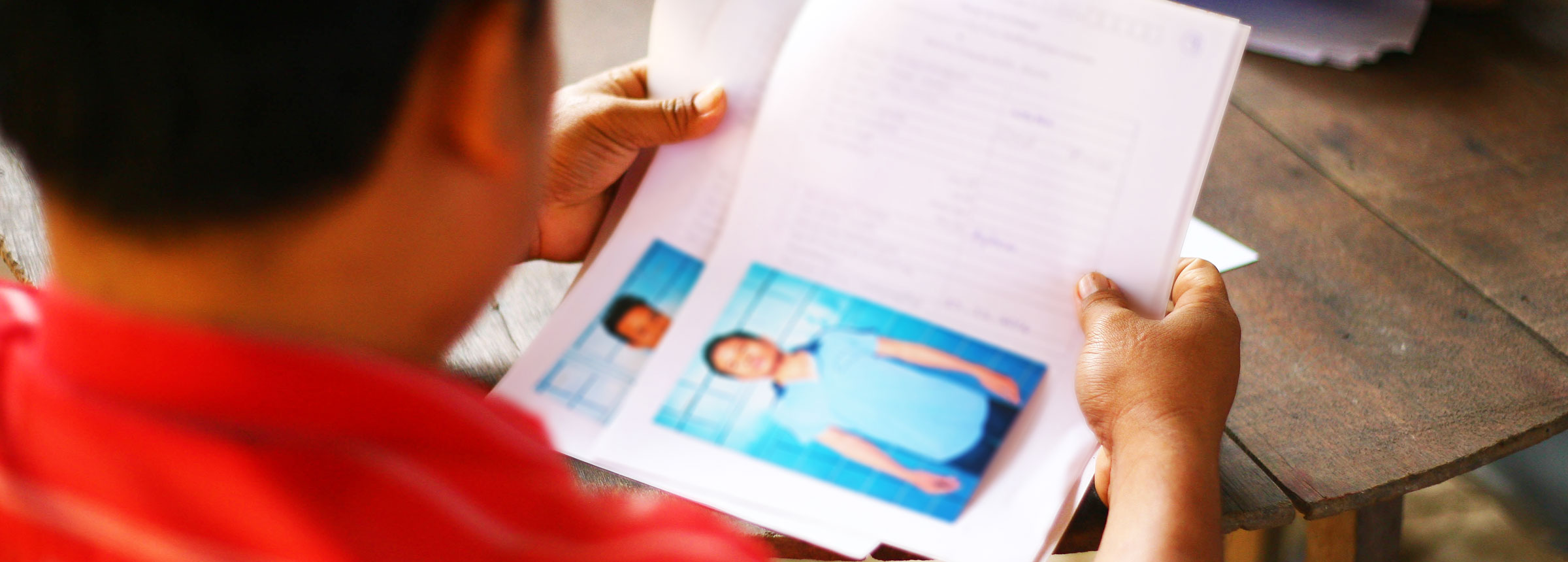
Cambodia Countering Trafficking-in-Persons Program (CTIP)
Poverty motivates hundreds of thousands of Cambodians to migrate every month in search of employment opportunities. Many of those who leave are uneducated and have limited access to information, which makes them particularly vulnerable to human traffickers. Targeted at provinces with high prevalence of trafficking, this four-year program seeks to prevent trafficking through livelihood development,…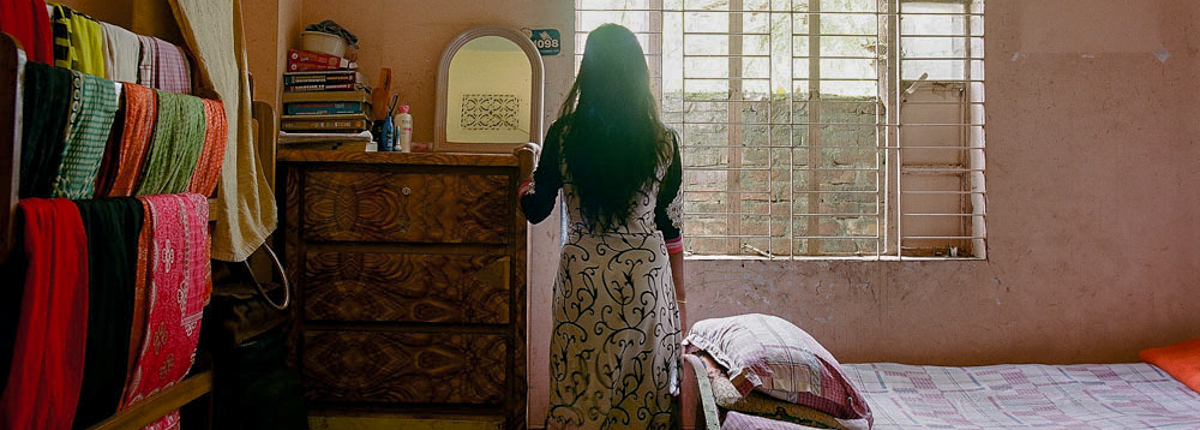
Fight Slavery and Trafficking-in-Persons (FSTIP) Activity
Human trafficking is a major problem in Bangladesh, which is a source, transit, and destination country for men, women and children trafficked into forced labor, commercial sexual exploitation, child marriage and other abusive situations. The COVID-19 pandemic exacerbated vulnerabilities to trafficking, exploitation, and child marriage, as widespread loss of livelihood opportunities and employment, restrictions on […]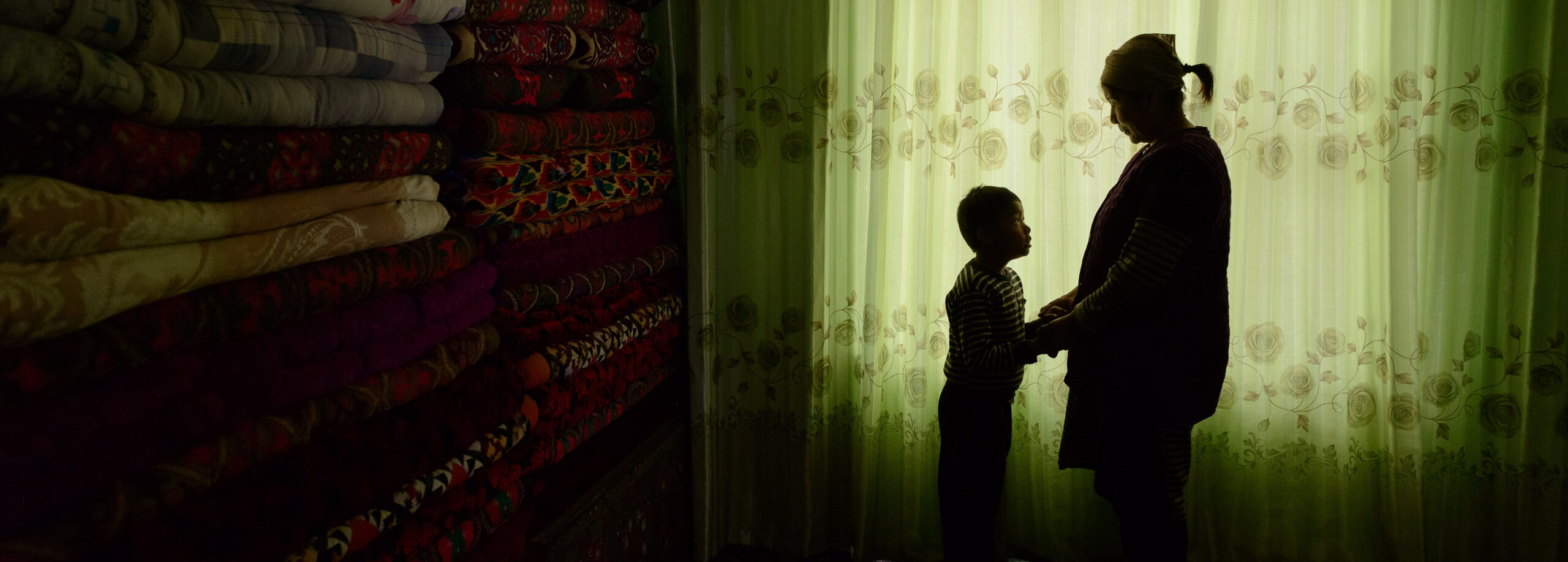
USAID Asia Counter Trafficking in Persons (CTIP)
Complex problems require transcendent solutions, ones that span borders and sectors. Human trafficking is such a problem, and the USAID Asia Counter Trafficking in Persons program (USAID Asia CTIP) is such a solution. USAID Asia CTIP is a regional activity that focuses on transnational and regional challenges to combat human trafficking. The program aims to…